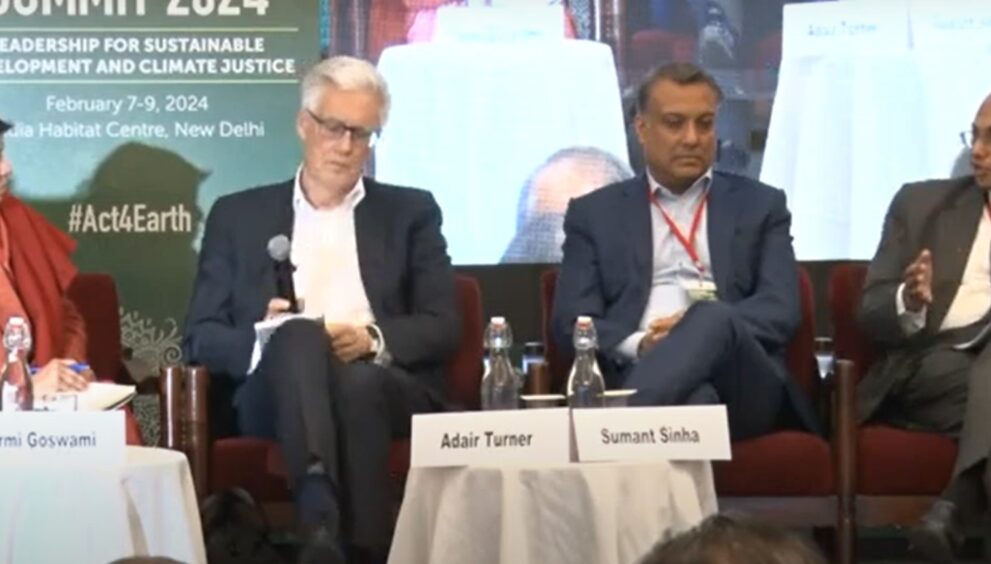Addressing The Energy Trilemma In A Resource Constraint World

To address the challenges posed by the energy trilemma and deliberate on the possible role global leaders can play in fast-tracking the process in a resource-constrained world
Key Investment Requirements Identified
The G20 New Delhi Leaders’ Declaration underscored the urgent need for significant investments to achieve net zero emissions by 2050. Specifically, it highlighted the necessity of “USD 4 trillion per year for clean energy technologies by 2030.” This substantial investment is crucial for driving the transition towards cleaner energy sources.
As countries race to adopt clean energy technologies, the demand for critical minerals has surged. Technologies such as wind, solar, electric vehicles (EVs) and battery storage rely heavily on minerals like copper, cobalt, nickel, lithium and rare earth elements. However, the uneven distribution of these minerals poses challenges, necessitating a global strategy to ensure a stable supply chain.
Lord Adair Turner, chairperson of the Energy Transition Commission, emphasised the importance of energy efficiency and electrification in reducing energy demand and achieving prosperity. He highlighted the efficiency gains of electrification, particularly in transportation and heating, as well as the role of renewable energy and nuclear power in enhancing energy security.
Overcoming Implementation Challenges
“The significant challenges hindering the transition to renewable energy. These challenges include fragmented decision-making processes, bureaucratic hurdles in infrastructure expansion and financing complexities. Overcoming these barriers requires strong regulatory frameworks and innovative financing mechanisms”, Outlined, Sumant Sinha, Founder, chairman and CEO of ReNew Power.
Ajay Mathur, Director General of The International Solar Alliance, shed light on the financing constraints facing Africa’s renewable energy sector. Despite the continent’s vast potential for solar energy, insufficient financing and regulatory uncertainties hinder progress. Mathur stressed the importance of addressing investment risks, improving payment guarantee mechanisms expanding grid infrastructure to unlock Africa’s renewable energy potential.
While the transition to renewable energy offers immense opportunities, overcoming the associated challenges requires coordinated efforts from policymakers, investors and stakeholders worldwide. By addressing investment barriers, enhancing regulatory frameworks and promoting innovation, global leaders can accelerate the transition to cleaner and more sustainable energy sources.











































































































































































































































































































































































































































































































































































































































































































































































































































































































































































































































































































































































